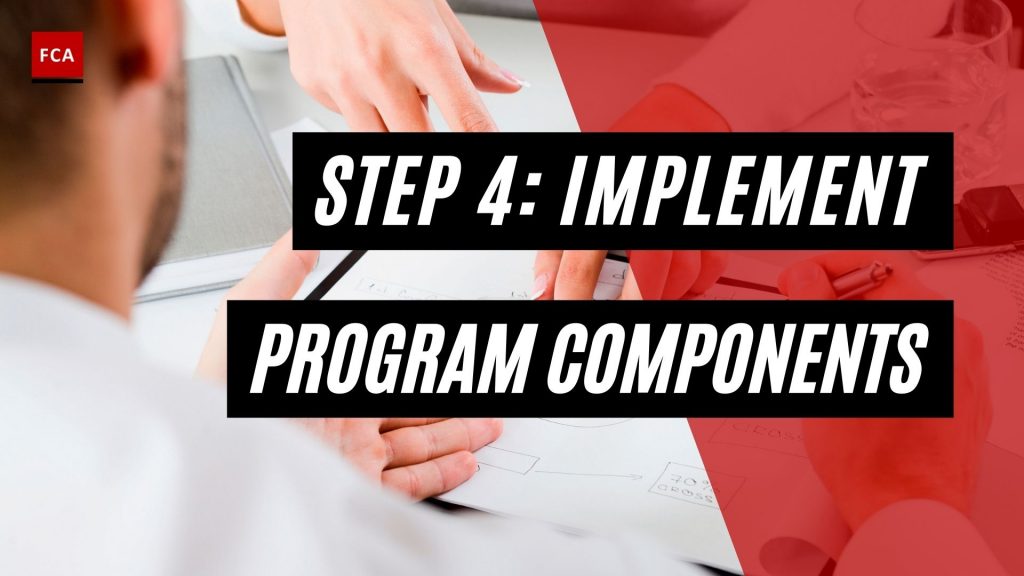Implement program components. Effective fraud risk management program requires the development of policies, standard operating procedures, manuals, segregation of duties matrix, and service level agreements. These documents form part of the organizations’ overall fraud risk management program.

Implement Program Components: Step 4 In Fraud Risk Management
It must be ensured that all those internal controls developed and designed to mitigate the fraud risks are consistently incorporated in the program components. When documenting these controls, a distinction must be made between the process-level controls and entity-level controls.
Defining policies and procedures covering preventive and detective controls elements is not enough. There must be considerations regarding, review, and approval of these program components, from relevant departmental heads and risk management committees to ensure that all necessary fraud risks management controls are considered and built as part of the processes in program components. Cross-functional and departmental reviews help in the identification of processes where gaps exist, which need to be addressed through the development of internal controls.
After such cross-departmental reviews, the gaps are identified and consolidated, and appropriate remediation plans are devised. Such remediation plans must address high priority gaps, which may lead to potential fraud incidents if not filled.
Internal Controls
Internal controls only prevent or detect fraud if the employees, as process owners, effectively perform their assigned roles and responsibilities as per the defined policies and procedures. As employees work at different levels and in different roles in the organization, it becomes the primary responsibility of the respective departmental heads to ensure that their teams are provided with well-defined job descriptions, policies, and procedures for understanding, reference, and compliance purposes.
When the job descriptions are well defined considering maker checker concepts and segregation of duties, then the chances of occurrence of fraud risks are minimized.
To implement program components across the entity, the organization may obtain the support of specialists such as subject matter experts. These subject matter experts may be from different backgrounds, such as regulatory compliance anti-money laundering (AML/CFT). Risk management, finance, etc.
Subject Matter Experts
Subject matter experts are from fraud investigations backgrounds, risk management, finance, compliance, and audit, who not only understand the regulatory and legal requirements but also are trained to understand the fraud risks factors in particular departments or processes of the organization. These subject matter experts possess in-depth knowledge and a clear understanding of the risk sources such as regulations, laws, standards, and internal controls frameworks. They help Board and management implement robust and transparent fraud risk management program components.
Successful implementation of program components significantly reduces the risks of fraud incidents because the program components bring transparency and ownership in the processes and activities of different departments. Reporting lines and escalation procedures are developed and implemented, giving tone to all the employees about maintaining and complying with the program components.
Corporate fraud and misconduct continue to be a constant threat to public trust in the capital markets. The public sector is also vulnerable to fraud, particularly in the provision of services and the supply chain. Organizations can benefit from focusing their efforts on developing a comprehensive, proactive strategy to prevent, detect, and respond to integrity threats.
Final Thoughts
If a company has a digital channel, chances are it has been affected by fraud or potential fraud at some point during its operations. And, in an age when online fraudsters appear to be one step ahead of the best fraud detection models thanks to tools like’synthetic identities,’ businesses are looking to develop a comprehensive approach to their fraud and risk management strategies.
Simply put, fraud risk management is the process of assessing fraud risks within your organization and then developing an anti-fraud program that prevents fraudulent activity from occurring. It entails identifying potential and inherent fraud risks and developing a program to detect and prevent suspected fraud, both internal and external to the organization.








